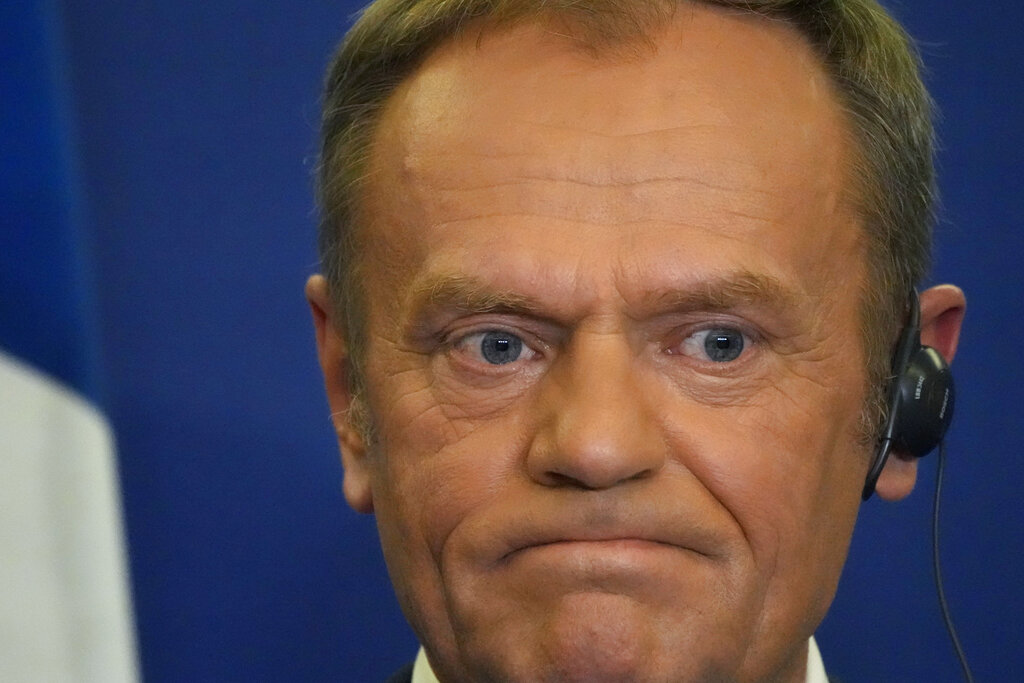During the last week or so, the ruling conservative Law and Justice (PiS) has been rallying its electorate by defending Saint John Paul II after a new film claimed he covered for pedophile priests. Conservative voters who may have been getting tired of the problems facing the ruling party have suddenly been given something to mobilize around; this means they may vote against the liberal Civic Platform (PO), even if they don’t explicitly support PiS.
The PO’s misfortune is that the film linking Pope John Paul II to the covering up of pedophile scandals was broadcast by TVN, the TV station associated so closely with the PO. All the media that have defended the controversial film are also PO sympathizers. Donald Tusk must feel that he has been stabbed in the back by those who should be supporting him.
Tusk and the PO have spent the last few months looking for issues that would raise support for the liberals in the polls. Everything has been tested by now: the rule of law, support for the EU, zero-rate mortgages, and additional welfare spending. Despite all this, the party is stuck just below 30 percent in the polls, pretty much where it was at the last parliamentary election, which it lost by 3 million votes, as voters thanked the ruling conservatives for big increases in social spending and rising living standards.
Since 2019, it certainly has not been clear sailing for the ruling PiS. The governing party managed to irritate many voters. It overreacted to the pandemic by shutting parks and forests. It almost tripped over its own feet by trying to force through a postal ballot election for the president that the voting system was not remotely prepared for. The historic abortion compromise from the 1990s has been abandoned. They introduced a tax reform that was a nightmare for small businesses. They have failed to secure EU recovery funding thanks to a judicial reform they themselves admit has been failing. Nepotism, cronyism and questionable public spending have been rife. Inflation has also led to a fall in real incomes.
No wonder then that support for the ruling party fell from 43 percent at the last election to below 35 percent, even if that support is now rising. What is surprising, however, is that the poll ratings of the main opposition party, the PO, have not risen significantly. Tusk’s promises to deal with abuses of power by PiS have not increased support for the PO, nor have any other promises he has been making.
What this shows is that the political scene looks to have been cemented by the polarization between the two camps that actually evolved from the Solidarity movement — the two camps led by Donald Tusk and Jarosław Kaczyński.
One of the key factors has been the way the media and social media have followed the polarization and created information bubbles that keep the two camps separate and reinforce their prejudices. Pro-government public TV and radio are the most blatant example of this, but the liberals have their media as well, which are also hardly a model of balanced journalism.
Poland’s system of party financing has also been a factor. It provides generous financial support for parties that enter parliament, giving them a huge advantage over any new party, which cannot get any state funding until it enters parliament and has its ability to raise private funds restricted.
The demographics are also moving against the PO. Poland is an aging society, which means seniors, who have a higher propensity to vote, are making up an increasing proportion of the electorate, and the older a person becomes, the more likely they are to be conservative-minded.
Donald Tusk, on the face of it, has a “reserve electorate” in the shape of those who at the last election voted for the Left or the center-right PSL. These are the people he has addressed in the social spending promises he is making. They previously voted for the parties whose vote he is trying to squeeze in order to force them to accept a joint election slate with the PO that Tusk is convinced would make victory in the election more likely.
Despite Tusk’s efforts, none of this is working.
It looks as if the PO simply is not attractive enough for a wide range of voters who do not necessarily want to back PiS but see the PO as a party that has had its day. The opposition party that has been increasing its support of late is the right-wing Confederation, especially among younger voters, and not the PO.
The PO is viewed as being too close to Germany and too trusting in Brussels, and its celebrity and academic supporters are too willing to show their disdain for the poor and the less well-educated who support the ruling conservatives. To make things worse, the PO is dominated by the same people and led by the same man as it was many years ago.
It is a symbol of the past and not of the future.





